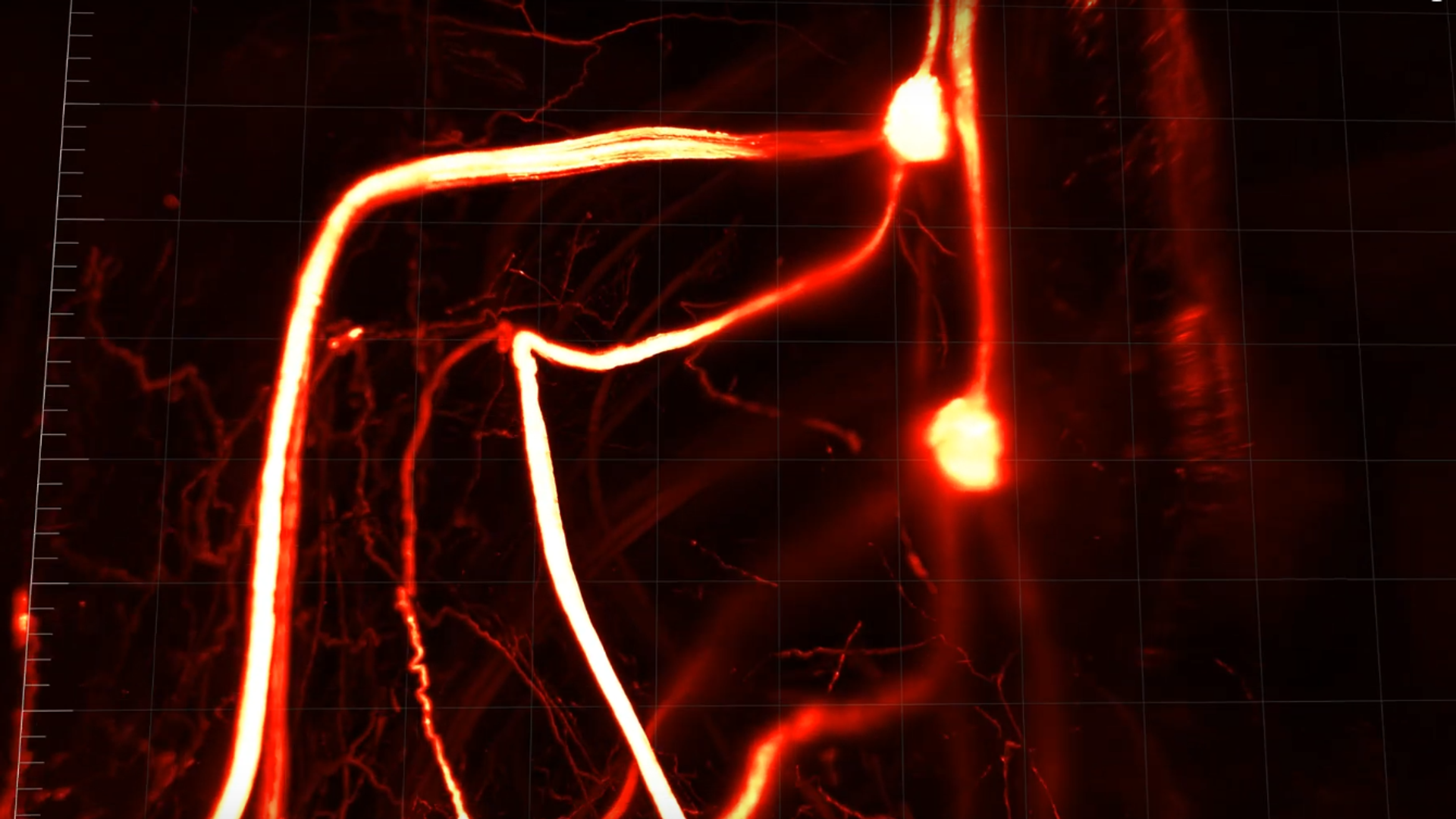https://sputnikglobe.com/20220901/its-not-your-fault-you-ate-that-extra-piece-of-pie-fat-cells-talk-directly-to-brain-study-reveals-1100279523.html
It’s Not Your Fault You Ate That Extra Piece of Pie: Fat Cells Talk Directly to Brain, Study Reveals
It’s Not Your Fault You Ate That Extra Piece of Pie: Fat Cells Talk Directly to Brain, Study Reveals
Sputnik International
Scientists have spent decades researching the ways in which adipose tissue (body fat) communicates with the mammalian brain, with the prevailing view being... 01.09.2022, Sputnik International
2022-09-01T15:42+0000
2022-09-01T15:42+0000
2023-04-21T10:42+0000
science & tech
fat
brain
research
connection
communication
https://cdn1.img.sputnikglobe.com/img/07e6/09/01/1100279266_12:0:1352:754_1920x0_80_0_0_0ac80307443b50a862222e4cda8cab64.png
Researchers at California’s Scripps Research Institute have identified a network of sensory neurons which carry messages from fat cells directly to the brain.In a paper published by Nature on Wednesday, researchers outlined how neurons connected to the brain and concentrated near the spine and previously thought to be responsible only for our fight-or-flight response branch out into fatty tissue, allowing for communication to take place.Scientists were able to observe the connections using a specially-developed imaging tool known as HYBRiD, first unveiled earlier this year as a tool for analyzing body-wide biological processes and diseases.Using the tool on lab mouse tissue, researchers were able to painstakingly map connections extending from adipose tissue outwards, finding that nearly 50 percent of these links did not connect to the sympathetic nervous system (the fight-or-flight mechanism), but to the brain’s dorsal root ganglia.The use of a cell manipulation method called ROOT, consisting of a targeted virus which destroys subsets of sensory neurons within adipose tissue, allowed scientists to get a better look at the connections.Biologists have long been aware that the body releases energy held in fat cells as necessary, and that adipose tissue is responsible for signaling molecules related to hunger and metabolism regulation. It’s also known that among people suffering from diseases such as diabetes, obesity, fatty liver disease, and atherosclerosis, these signals are interrupted. However, the existence of a direct communications link between fat and the brain is a new and exciting finding.Dr. Adem Patapoutian, a Nobel laureate and co-author on the study, said the new research is “yet another example of how important sensory neurons are to health and disease in the human body.”While researchers are confident that the newly discovered sensory neurons help to keep fat healthy, they say more research will be needed to figure out just what kinds of messages are being sent, with additional work planned, including to determine whether cells with a similar purpose can be found in other organs.Scientists say their groundbreaking work could eventually lead to practical applications, including the possible modulation of these brain-to-fat sensory lines of communication using therapeutics to treat obesity and other metabolic diseases.
https://sputnikglobe.com/20220901/russian-scientists-create-structures-to-improve-quality-of-mri-scanning-1100272915.html
https://sputnikglobe.com/20220827/82-foot-long-dinosaur-fossil-found-in-mans-backyard-1100074227.html
Sputnik International
feedback@sputniknews.com
+74956456601
MIA „Rossiya Segodnya“
2022
News
en_EN
Sputnik International
feedback@sputniknews.com
+74956456601
MIA „Rossiya Segodnya“
Sputnik International
feedback@sputniknews.com
+74956456601
MIA „Rossiya Segodnya“
science & tech, fat, brain, research, connection, communication
science & tech, fat, brain, research, connection, communication
It’s Not Your Fault You Ate That Extra Piece of Pie: Fat Cells Talk Directly to Brain, Study Reveals
15:42 GMT 01.09.2022 (Updated: 10:42 GMT 21.04.2023) Scientists have spent decades researching the ways in which adipose tissue (body fat) communicates with the mammalian brain, with the prevailing view being that messages are sent via hormones which passively float through our bloodstreams. Now, scientists believe they’ve discovered a brand new type of link.
Researchers at California’s Scripps Research Institute have identified a network of sensory neurons which carry messages from fat cells directly to the brain.
In a
paper published by Nature on Wednesday, researchers outlined how neurons connected to the brain and concentrated near the spine and previously thought to be responsible only for our fight-or-flight response branch out into fatty tissue, allowing for communication to take place.
Scientists were able to observe the connections using a specially-developed imaging tool known as HYBRiD,
first unveiled earlier this year as a tool for analyzing body-wide biological processes and diseases.
Using the tool on lab mouse tissue, researchers were able to painstakingly map connections extending from adipose tissue outwards, finding that nearly 50 percent of these links did not connect to the sympathetic nervous system (the fight-or-flight mechanism), but to the brain’s dorsal root ganglia.
The use of a cell manipulation method called ROOT, consisting of a targeted virus which destroys subsets of sensory neurons within adipose tissue, allowed scientists to get a better look at the connections.

1 September 2022, 14:01 GMT
Biologists have long been aware that the body releases energy held in fat cells as necessary, and that adipose tissue is responsible for signaling molecules related to hunger and metabolism regulation. It’s also known that among people suffering from diseases such as diabetes, obesity, fatty liver disease, and atherosclerosis, these signals are interrupted. However, the existence of a direct communications link between fat and the brain is a new and exciting finding.
“The discovery of these neurons suggests for the first time that your brain is actively surveying your fat, rather than just passively receiving messages about it,” Dr. Li Ye, the paper’s senior co-author, said in a
press release. “The implications of this finding are profound,” the academic stressed.
Dr. Adem Patapoutian, a Nobel laureate and co-author on the study, said the new research is “yet another example of how important sensory neurons are to health and disease in the human body.”
While researchers are confident that the newly discovered sensory neurons help to keep fat healthy, they say more research will be needed to figure out just what kinds of messages are being sent, with additional work planned, including to determine whether cells with a similar purpose can be found in other organs.
Scientists say their groundbreaking work could eventually lead to practical applications, including the possible modulation of these brain-to-fat sensory lines of communication using therapeutics to treat obesity and other metabolic diseases.

27 August 2022, 22:27 GMT



